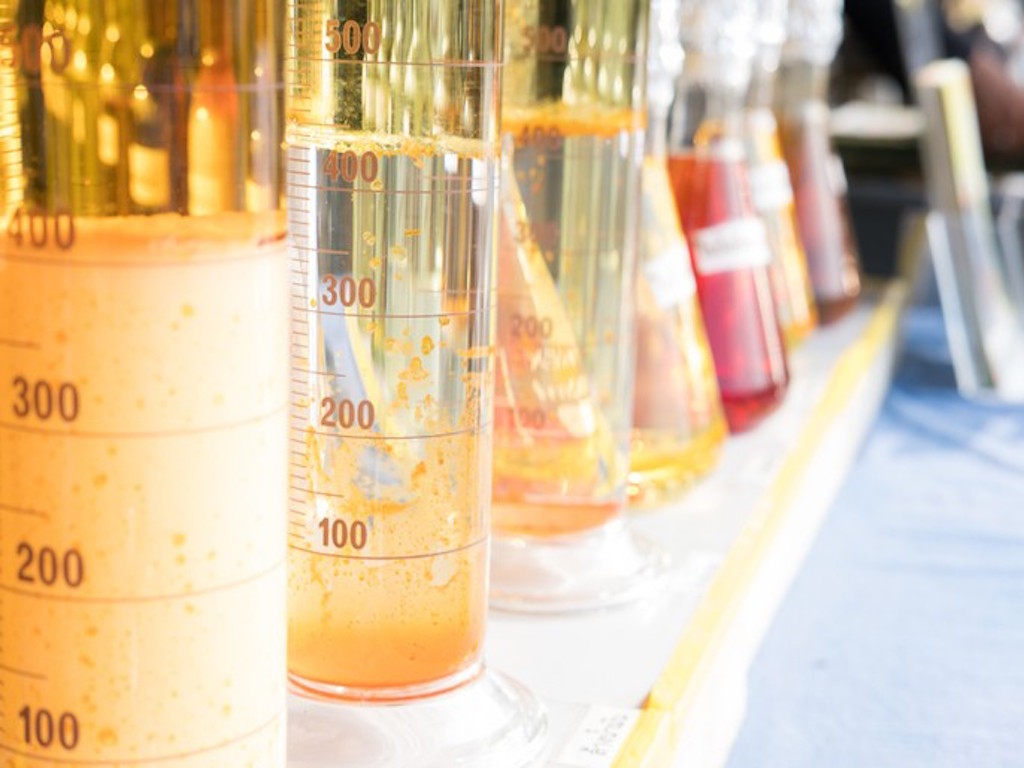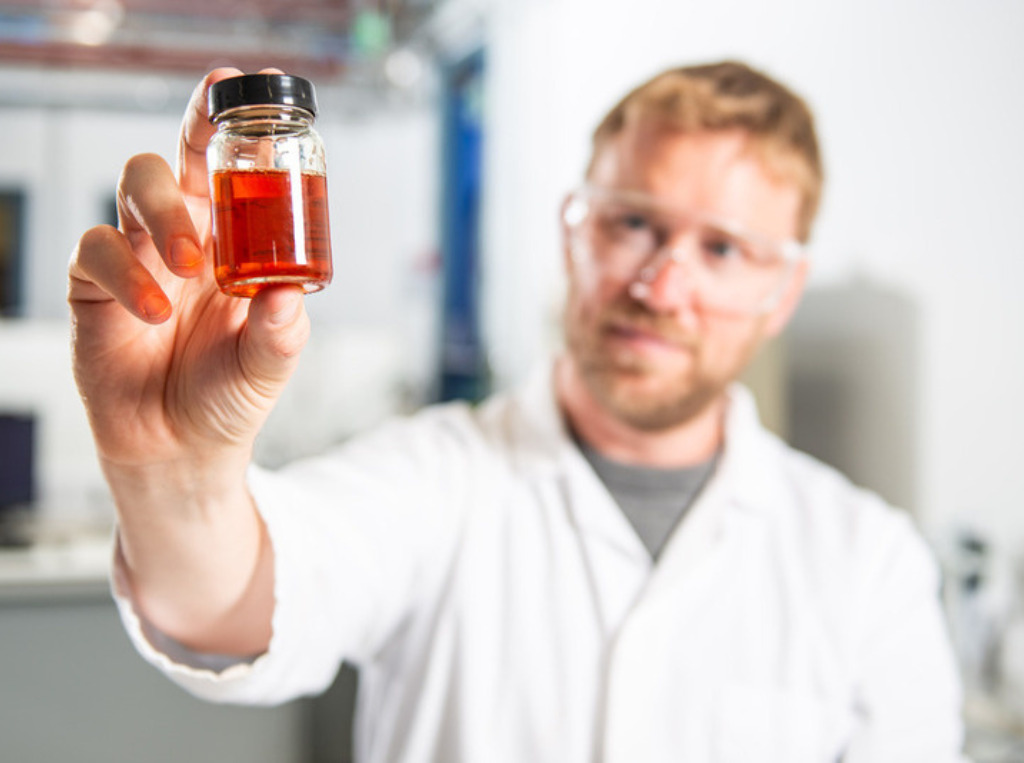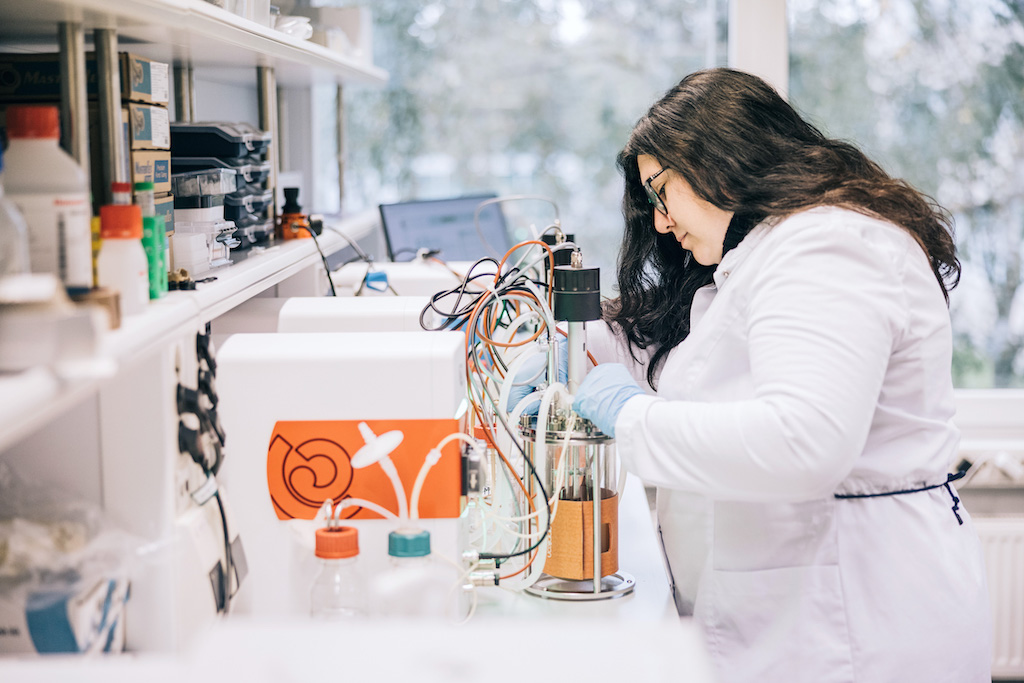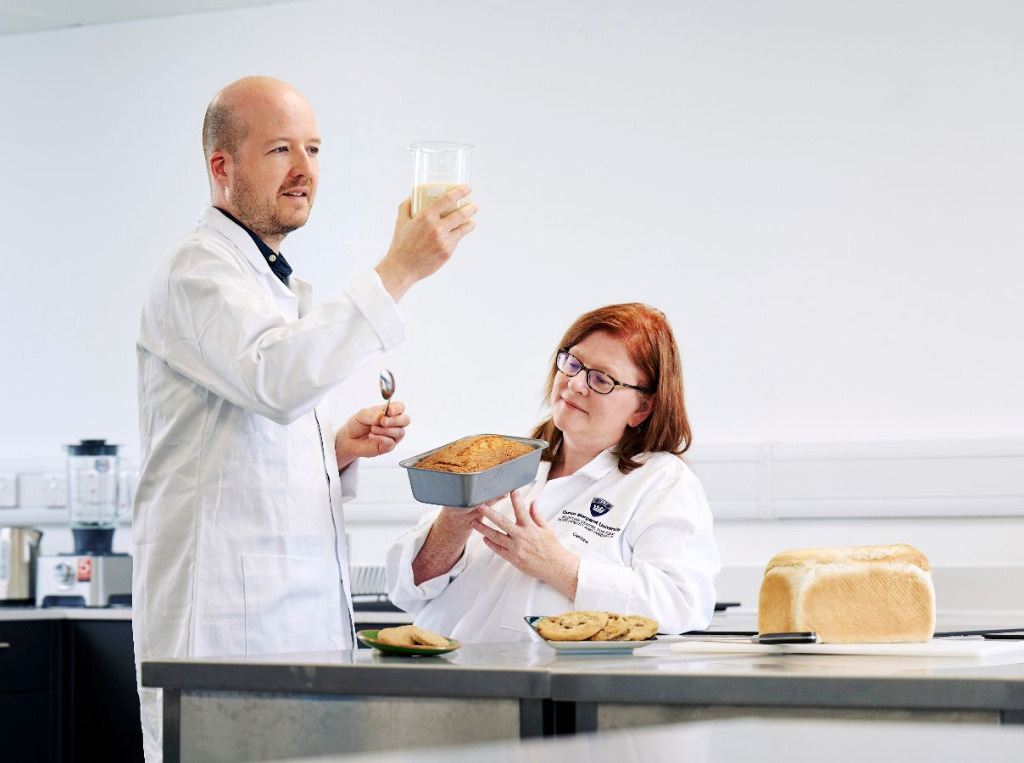PALM-ALT: Could This Palm Oil Alternative Be the ‘Holy Grail’ of Sustainable Baking Fats?
5 Mins Read
A new sustainable fat by Edinburgh’s Queen Margaret University (QMU) is the latest to join the fledgling palm oil alternative sector. Using food industry sidestream ingredients, PALM-ALT is said to be 70% better for the environment (emissions-wise) and contains 88% less saturated fat. The researchers claim this is the “holy grail” of eco-friendly palm oil substitutes.
Experts at the Scottish university say their palm oil alternative uses a byproduct from the linseed (aka flaxseed) industry, combining it with natural fibre and rapeseed oil (aka canola oil) to produce a fully plant-based fat that resembles the texture of mayonnaise.
Catriona Liddle, one of the lead developers, told the BBC: “It’s the holy grail to replace [palm oil] and still have exactly the same end result in product – to taste the same and have the texture the same – and we’ve done that.”
PALM-ALT – which contains 25% less fat overall, 88% less saturated fat, and 30% fewer calories – can be produced on a global scale locally and is cost-competitive, according to QMU. It is also free from added flavourings, sugar, sweeteners, preservatives or colourings.
“We’ve put it through some special sensory testing to see if a panel can tell the difference between our product and traditional palm shortening, and they can’t,” Liddle told the BBC.

The problem with palm oil
Palm oil is the most widely produced oil in the world – accounting for 40% of all oil production. It works as a natural preservative, has no taste, smell or colour, and can withstand high temperatures, making it a favourite for food and beauty companies around the world. In fact, it’s present in half of all supermarket items, across every category.
But palm oil is a major driver of tropical deforestation – 90% of the world’s palm oil trees are located in the rainforests of Indonesia and Malaysia. In August 2019, Indonesian forests were engulfed by wildfires caused directly by palm plantation trees. As per one estimate, tropical deforestation is responsible for nearly 20% of all greenhouse gas emissions annually.
Rainforests are cleared and various species are killed to make way for these plantations. Palm oil production has increased tenfold since 1980, and is set to increase by another 50% by 2050. The high demand means more forests are burnt down, a form of mass deforestation that emits greenhouse gases, while removing trees that would help absorb these very emissions.
Moreover, palm oil cultivation is a threat to wildlife including orangutans – 50% of whom are found outside national parks due to deforestation – and rhinos. Moreover, the industry is linked with human rights abuses, with Indigenous communities losing their lands and villages, and workers exploited with poor working conditions and pay.

“It is therefore essential to develop an alternative product, which works well for the food industry and helps reduce the world’s overreliance on palm,” said Liddle. PALM-ALT has the potential to replace palm oil in baking products, where it is largely used for its ability to remain solid at room temperature (owing to a high amount of saturated fat). “Palm-based fat works particularly well in bakery products due to its composition, taste and mouthfeel. For example, it helps produce cakes which are light, with a good taste profile which has a pleasant mouthfeel.”
Dr Julien Lonchamp, who led the research alongside Liddle, added: “Our team has patented the PALM-ALT composition and process and we are currently in discussions with a number of partners to implement the novel palm replacer at the industry level.”
A growing list of palm oil alternatives
QMU’s palm oil alternative joins a fast-growing lineup of companies hoping to produce a like-for-like substitute for the problematic fat. Last month, fellow British firm Clean Food Group raised £2.3M to accelerate the commercialisation of its fermentation-based palm oil replacement.

New York-based climate tech startup C16 Biosciences, meanwhile, has created a Palmless Torula oil, using microbes grown in bioreactors. The bioidentical palm oil alternative has been used in a soap bar by British material science firm Pangaia and skincare label Haeckels. Across the coast, Bay Area firm Kiverdi is making a sustainable substitute to palm oil using captured carbon, and Zero Acre makes a Cultured Oil rainforest-fed sugarcane as a replacement for conventional vegetable oil. Meanwhile, Wisconsin-based Xylome makes a yeast-derived Yoil.
Also in the US, Unilever injected $120M into San Diego’s Genomatica last year, whose palm oil replacement is suited for personal, home and cleaning products as of now. Ohio-based Locus Ingredients’ palm alternative is similar, using fermentation to replace palm-based ingredients and chemical surfactants.
In Europe, Estonian startup Äio raised €1M in February to scale up production of its alternative, which (like ALT-PALM) uses byproducts from agricultural sidestreams. Dutch company NoPalm Ingredients similarly makes use of waste feedstocks like discarded produce and peelings to make its microbial-fermented palm oil substitute. Fellow Dutch startup Time-Travelling Milkman uses sunflower seeds to make a fat alternative that can replace palm oil in various applications.

In Germany, meanwhile, Colipi is a biotech firm using precision fermentation to turn yeast into ‘Carbon Oil’ by using organic sidestreams as feed. And alt-chocolate producer ChoViva revealed to Green Queen earlier this month that it is working on cocoa butter and palm oil alternatives.
In Singapore, scientists at the Nanyang Technical University are working on replacing palm oil with a microalgae fat, which is said to have better health and eco credentials The new oil is claimed to offer health and sustainability benefits, including lowering cholesterol and being made from regenerative algae varieties.
Despite this list, Liddle is confident that its ALT-PALM oil is unlike any other alternative. “Despite efforts to develop more sustainable cultivation practices, the industry has found it difficult to identify another fat which delivers the cost benefits and physical characteristics (bland taste, food shelf-life and ambient storage) that palm offers, and which is not linked with health concerns,” she argued. “Currently, there is no palm oil replacement that is sustainable, healthy and cost-effective.”




